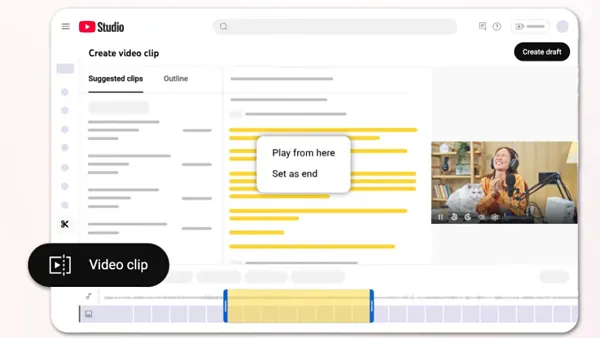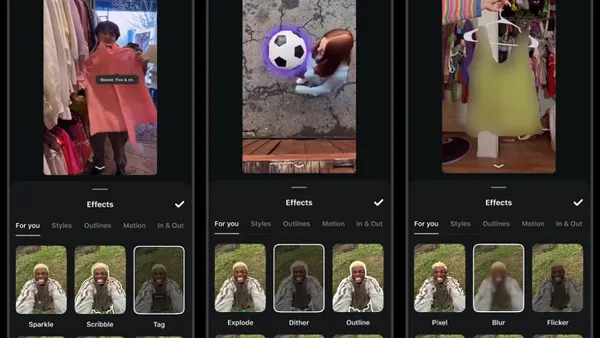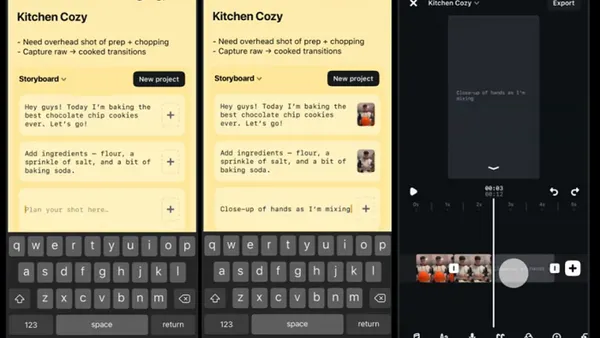As someone who regularly works with trainees from Public Relations or Communications schools I often hear from these students that "social media" is not really something they learn at school. So what follows below is an email interview I did with Serge Cornelus who is a lecturer in Communications Management at the Arteveldehogeschool, one of the best PR schools in Belgium.
My objective with this interview was to see if social media is integrated in the study program of Communications and/or PR students these days and to discover how the new tools of the game are implemented in teaching.
Can you give me an overview on how "social media for business communications" is taught at University College Arteveldehogeschool ?
To start with, I should probably point out that in the Communications Management department, where I work, the basic setup is one of combining theory with practice. And that is the case in both sections: the Marketing Communications section as well as the Public Relations section. At the beginning of our Bachelor programme the emphasis is of course on theory. Over the second and especially the third year, the emphasis is placed more on practice, with real-life practice cases for external companies and organisations, a great deal of practical assignments and a three months' internship.
A similar evolution can be noticed when it comes to teaching social media. In the first year, social media and web 2.0 applications are introduced in, for example, the Communication Studies and Multimedia courses. But students are also asked to set up a wiki for a practical assignment as well as being shown how to set up a blog and what the different possibilities are. There is also attention for the sociological aspect of these new media, and we have realized rather quickly that ethics and deontology are two aspects which should not be omitted either.
In the second year, the courses of Marketing Communications and Public Relations elaborate on the specific use of social media in building brands, or in safeguarding the corporate image. And in the third year, this content is also integrated in the subsequent courses of, for example, Advertising, Media Planning or Internet PR. Furthermore, the New Media course steps up the attention spent on social media and focuses on related topics like social bookmarking, RSS and web monitoring.
For some practice cases, students set up a wiki for co-operative purposes, and they also have to record their internship activities in a (private) blog. Furthermore, students are coached in their web writing skills in the language courses. Personally, for example, I ask my students to publish a number of texts on a wiki, making it possible for them to read and comment on one another's writings. Finally, and this does not really have educational purposes, students are stimulated to join the LinkedIn group for our department's alumni as well as the Facebook group of their graduation year.
Is social media taught outside Public Relations courses (journalism etc...) and if so, is there another approach for each curriculum ?
Since I do not lecture in other departments, it is hard for me to comment on that. The only department that we have links with is the department of Journalism (which is not just a different section within our department anymore, but which has evolved into a department in its own right). Without going into detail too much (like I said, I don't work in the department) I can tell you about the cases I know of in which social media are used.
There are, for example, a number of projects (like the 'Over de grenzen/Across the borders' project in which a group of students go abroad for about a week to produce articles and reports on a foreign city; or Scoop Magazine, the department's own magazine) where wikis are deployed as an easy-to-use platform to publish and share or extend content.
There are also regular deadline exercises in which the students who take the classes of internet journalism have to simulate a web newsroom and which cover a whole day of news gathering, processing and publishing. A wiki is used as a CMS to simulate a news website. If I am not mistaken, internet journalism students have to blog for a number of weeks or months about their journey through the web 2.0 world. And they also have to interview a blogger, a webmaster or other expert on web 2.0.
Although students use "social media" like blogs, wikis, social networks etc... in their private life, do you think they can put these tools in the context of a public relations plan?
I hope so! Perhaps not in the first or even the second year, but final-year students and graduates today normally have been given a good overview of the different possibilities, strategically and tactically speaking. They have been asked to design communication strategies and plans on their own, and preferably doing so in an integrated manner, including web and social media applications. And they usually do this very well. I remember, for example, last year's strategic and creative workshop in which students had to rethink the communication strategy and campaign of a well-known bank's youth section.
The people present from the bank and its communication agency were often quite impressed - and so were my colleagues and I, to be honest - with the extent to which students had integrated social media, even in ways that went beyond what they had been taught. So yes, if they put their minds to it, I am quite convinced that the majority of them can and would do so when asked.
Are social media used as educational tools at the college ? And if so, do you have an example ?
Well, I guess the examples mentioned before more or less cover that question. At least, where our department is concerned. It is difficult for me to speak for the entire college - we have, after all, more than twenty different departments. One particular project, however, I would like to plug here, if you don't mind me doing so, is the annual CONGA Award. This award - the CONGA is an acronym for Contest Organised by a New Generation of Advertisers - is presented annually by our final-year students to the campaign which, in their view, is truly integrated as well as being geared towards the target group 'youngsters'.
Needless to say that 'integration' also implies the internet. And, fortunately, social media play an ever increasing part in this respect too. Making students judge campaigns is another way for us of making students reflect upon the strategy behind different media, including social media.
A final remark I should make as well is this: the number of cases, successful ones preferably, that we can present to our students to illustrate how social media can be integrated in a total communication strategy, remains, even today, still relatively small. At least when you look at the phenomenon within the entire spectrum of communication campaigns. Simply have a look at, for example, campaigns winning an Effie Award. But it is exactly that kind of input that departments like ours need.
Moreover, a lot of applications come and go, are hard to trace, hard to keep tabs on and, hence, hard to explain to students. Networks come and go. Social network groups are here today but perhaps gone tomorrow. Discussions are launched and sometimes never picked up. What' s more: the control function of the 'creator' in the communication process (the former 'sender') has shifted towards the 'co-creator' (who used to be simply a 'receiver'). This co-creator receives certain gatekeeping powers, which turns former theories upside down. It is only very recent that new theories are being formulated.
Many theoreticians and even more professionals, even within the field of communication, are having trouble putting their finger on what is exactly happening and where we are headed. So I would hereby like to launch a request to everybody looking at us to produce 100% social media experts: please, cut us some slack...
There is the perception (and some proof) that "journalism schools" in the US, the UK and some in Europe have at least a two year head start when it comes to integrate the understanding of social media in their curricula. Do you agree ? Any thoughts on this ?
What can I say? My impression is this is certainly true for some of the schools and universities I know of. As with many internet-related phenomena, social media came from the US, although we probably should not underestimate the drive and influence coming from the far East here either. On the other hand, when travelling abroad for lectures or workshops, I notice we are on the forefront compared to many other countries. My assessment is Belgian colleges and universities were definitely not amongst the very early adopters in this respect, at least not on a global scale.
But I would certainly classify us amongst the early majority. And as a department, I think we picked up the trend relatively soon. After all, when we organised our Chair Jos Willems in combination with the Euroblog 2007 conference around the topic of social media, we could not help but notice that many communications professionals were quite eager to join because they too were still somewhat in the dark at that point.
If you would have all the resources needed, what would you change and how would you teach social media for business communications ?
Aha, the million dollar question... That is very difficult to say. After all, social media are not the only important topic to be taught. Let me be careful and just note that I would definitely provide all students with access to more computers and permanent internet connection.
But then again: with our new campus being opened in September, this should normally already become reality. I would stimulate the colleagues to get really acquainted with the phenomenon and see how and where they can integrate it in their courses. That is, in my view, an important way of teaching social media: not by approaching them solely as a topic as such, but by integrating them and using them for the purposes they are meant to be used, collaboration being one of them.
But this does not mean I believe in 'going social' all the way. Social media are an interesting tool that, in some cases, can have an added value. But they are, as far as I am concerned, complimentary to other tools, in the field of education just as well as in that of communication, public relations, advertising... So I'll just stick to being diplomatic and tell you I would continue on the path we have taken so far, continue to keep tabs on new evolutions and integrate them in as rational a way as possible...
Any thoughts on this from the business or academic world ? Please let us know !
Link to original post












